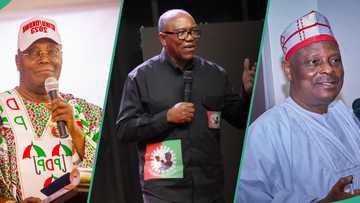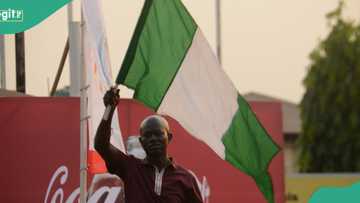Nigeria at 64: 7 Things You Should Know About October 1 Independence Day
- On Tuesday, October 1, 2024, Nigeria will celebrate its 64th Independence Day, but exploring a bit of our interesting history makes the big day even more significant
- Key events in Nigeria's history, including the amalgamation of its protectorates in 1914 and the contributions of the founding fathers, are spotlighted as part of the celebrations
- Legit.ng compiled interesting facts about Nigeria to celebrate the nation's great Independence anniversary
Don't miss out! Join Legit.ng's Sports News channel on WhatsApp now!
Nigeria's Independence Day is celebrated on October 1st of every year.
The 1st of October is a very significant day to all Nigerians; it is the day the nation gained its freedom from the British Empire.

Source: Facebook
On October 1, 1960, Nigeria gained independence from Britain. The late Abubakar Tafawa Balewa was the prime minister, leading a coalition government of the parliamentary system. Three years later, it became a republic.
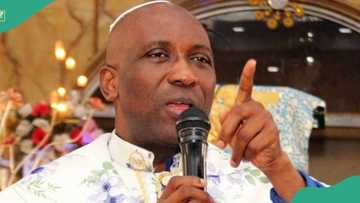
Read also
Independence Day: '3 things Nigeria must do to experience better days', Primate Ayodele shares
Nigeria is blessed with rich culture and history but there are many lessons to be learned from Nigeria’s impact on the African continent and the world at large.
To mark Nigeria’s 64th Independence Day, Legit.ng compiled key interesting facts you need to know:
Nigeria was formed in 1914
Nigeria was formed in 1914 when colonial authorities merged the Northern and Southern Protectorates of Nigeria, to form the amalgamated Protectorate and Colony of Nigeria.
This merger brought together over 400 ethnic groups and tribes into what was then the largest British colony in the world.
How Nigeria got her name
The name “Nigeria” was also derived from colonial sources. It was coined by Flora Shaw. She was the wife of Lord Lugard – a British soldier who paved the way for Nigeria’s amalgamation and became the first governor-general of Nigeria. Flora drew inspiration from the great river Niger and combined the words ‘Niger’ and ‘Area’ to form ‘Nigeria’.
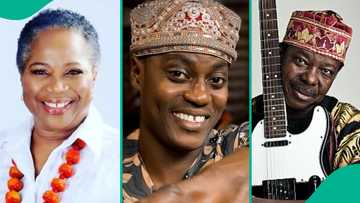
Read also
Nigeria at 64: Onyeka Onwenu's Peace Song, Sould Sultan's Motherland, other great songs about Naija
Nigeria gained independence in 1960
Nigeria gained its independence from the British Empire (colonial rule) in 1960. It initially adopted a British style of government with Abubakar Tafawa Balewa as the first Nigerian head of government (prime minister). The country then had a population of over 45 million people.
Nigeria's founding fathers
It took a lot of passion, determination, and selflessness from many great Nigerians to make the Independence Day a reality in 1960. Here are just a few Nigerians who were instrumental to this cause:
- Dr. Nnamdi Azikiwe, known as ‘Zik’, was the first elected president of Nigeria after independence.
- Obafemi Awolowo introduced free education in the Western region of Nigeria and also founded Action Group.
- Sir Ahmadu Bello founded the Northern People’s Party (NPP) in 1951 which later joined forces with Nnamdi Azikiwe’s NCNC party to fight for independence from the British.
Military leaders ruled Nigeria for 29 years
The nation's history is not complete without mentioning how the country was ruled by the military for a combined 29 years.
On January 15 1966, a group of young, idealistic, UK-trained army majors overthrew Nigeria's democratic government in a violent military coup — the country’s first.
A succession of increasingly repressive military governments ruled Nigeria for 29 of the next 33 years, until the restoration of democracy in 1999.
Some of the blowback effects of this coup included:
The secessionist Biafra movement.
It propelled a group of young military officers onto the national stage and they still wield enormous influence in Nigerian politics.
Corruption — the military decreed that all natural resources be controlled by the state, which has entrenched the do-or-die nature of Nigerian politics.
The army's politicised past means that Nigerians live with the (real or imagined) fear that a coup is a possible outcome of any political crisis.
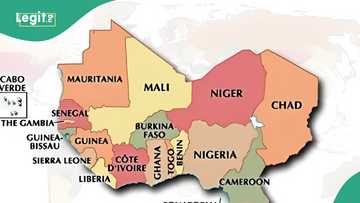
Read also
FULL LIST: 16 West African countries and their date of Independence as Nigeria marks October 1
Nigerian civil war started in 1967
In 1967, following two coups and turmoil that led to about a million Igbos (one of Nigeria’s most populous ethnic groups primarily from the Eastern region of the country) returning to the southeast of Nigeria, the Republic of Biafra seceded.
The Nigerian government declared war and after 30 months of fighting, Biafra surrendered. On January 15, 1970, the conflict officially ended.
From Independence to Tinubu Square
Among the landmark monuments that commemorate Nigeria's independence is the Independence Square which was built in 1960. Afterwards, it was renamed Tinubu Square in honour of a foremost Lagos aristocrat, Madam Efunroye Tinubu, who died in 1887.
Tinubu Square is an open space landmark located on Broad Street in Lagos state. It was reconstructed in 2007 to its current state.
Read more about Nigeria at 64:
- Nigeria at 64: Okonjo-Iweala, others disclose Nigeria’s greatest achievements in 2020 report
- Tinubu to address Nigerians on Independence Day, details emerge
- Nigeria at 64: Two things Nigerians must do to better the country
Independence Day: Tinubu’s govt declares public holiday
Earlier, Legit.ng reported that the federal government of Nigeria has declared Tuesday, October 1 as a public holiday across the 36 states of the federation including the federal capital territory.
The Minister of Interior, Dr. Olubunmi Tunji-Ojo, said the public holiday is for the commemoration of Nigeria’s 64th Independence Anniversary.
Tunji-Ojo urged the people to continue to be steadfast in nation-building as he wishes Nigerians a Happy Independence Day Anniversary.
Proofreading by Nkem Ikeke, journalist and copy editor at Legit.ng.
PAY ATTENTION: Сheck out news that is picked exactly for YOU ➡️ find the “Recommended for you” block on the home page and enjoy!
Source: Legit.ng


